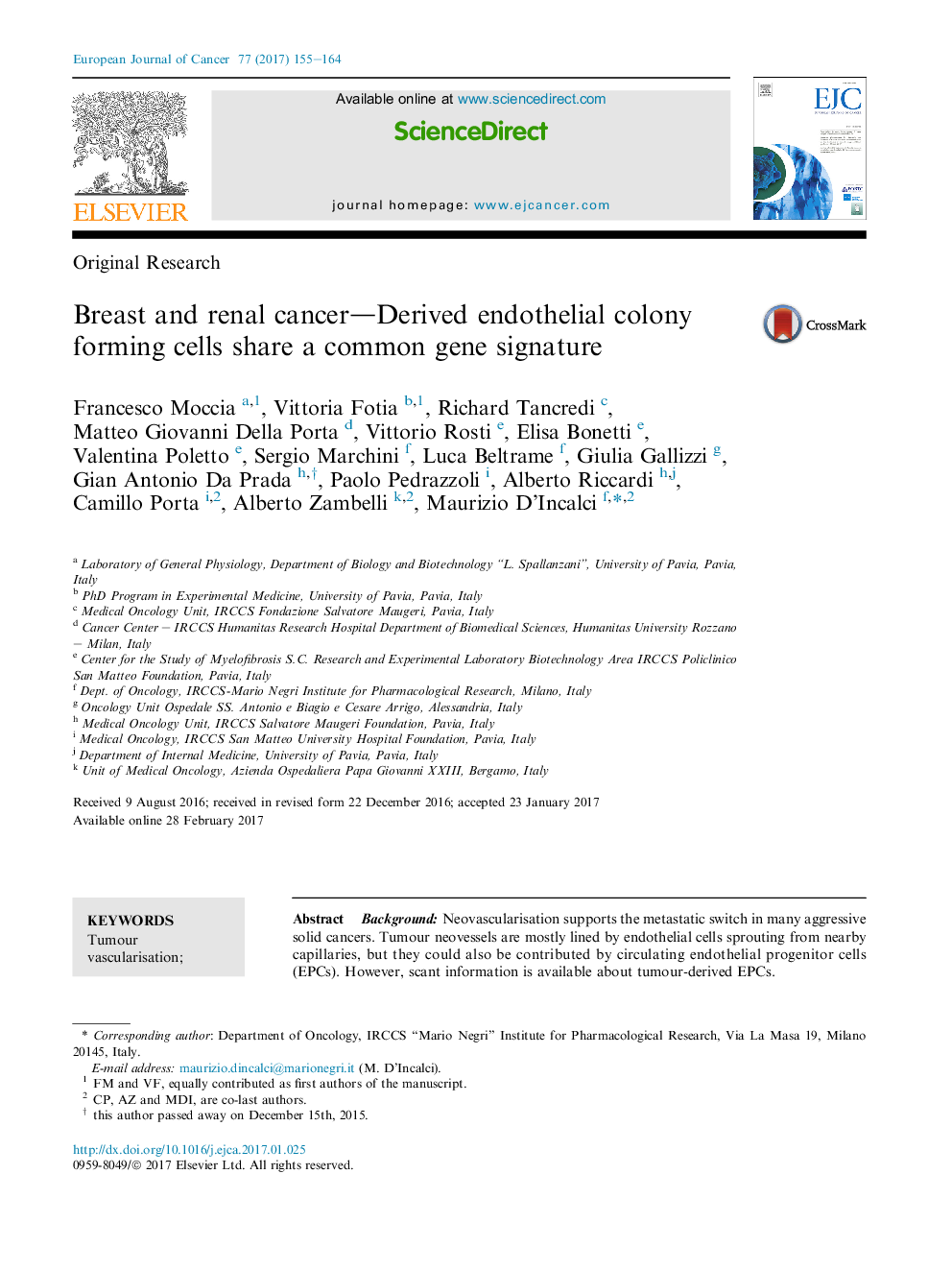| کد مقاله | کد نشریه | سال انتشار | مقاله انگلیسی | نسخه تمام متن |
|---|---|---|---|---|
| 5526627 | 1547055 | 2017 | 10 صفحه PDF | دانلود رایگان |
- Circulating endothelial colony forming cells (ECFCs) are involved in tumourigenesis.
- Gene expression profile is altered in breast and kidney cancer-derived ECFCs.
- Breast and kidney cancer-derived ECFCs share 35 differentially expressed genes.
BackgroundNeovascularisation supports the metastatic switch in many aggressive solid cancers. Tumour neovessels are mostly lined by endothelial cells sprouting from nearby capillaries, but they could also be contributed by circulating endothelial progenitor cells (EPCs). However, scant information is available about tumour-derived EPCs.MethodsWe carried out the first thorough, unbiased comparison of phenotype, function and genotype of normal versus tumour-derived endothelial colony forming cells (ECFCs), a truly endothelial EPC subtype. We used healthy donors-derived ECFCs (N-ECFCs) as control for breast cancer (BC)- and renal cell carcinoma (RCC)-derived ECFCs.ResultsWe found that both BC- and RCC-ECFCs belong to the endothelial lineage. Normal and tumour-derived ECFCs did not differ in terms of proliferative and tubulogenic rates. However, RCC-ECFCs were more resistant to rapamycin-induced apoptosis, whereas BC-ECFCs were more sensitive as compared with N-ECFCs. Gene expression profiling revealed 382 differentially expressed genes (DEGs; 192 upregulated and 150 downregulated) and 71 DEGs (33 upregulated, 38 downregulated) when comparing, respectively, BC- and RCC-ECFCs with N-ECFCs. Nonetheless, BC- and RCC-derived ECFCs shared 35 DEGs, 10 of which were validated by qRT-PCR; such 35 DEGs are organised in a gene network centred on FOS.ConclusionThese results provide the first clear-cut evidence that BC- and RCC-derived ECFCs exhibit an altered gene expression profile as compared with N-ECFCs; yet, they share a common gene signature that could highlight novel and more specific targets to suppress tumour vascularisation.
Journal: European Journal of Cancer - Volume 77, May 2017, Pages 155-164
